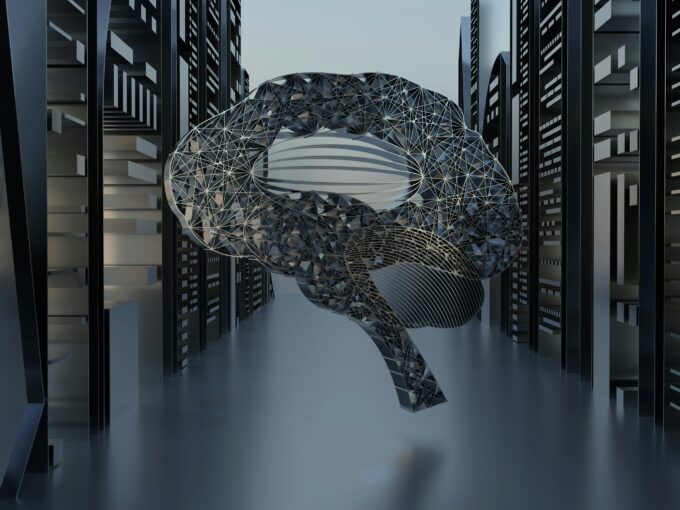
Image by Allison Saeng.
A.I. is asking us to reexamine our humanity.
It pops this question every time we sit down to write – whether we’re a high school student writing an English essay, a manager penning a business memo, or a screenwriter composing a script for an action film.
It asks: who is writing? Who is the writer?
It asks, too: who is the reader, the listener, the viewer? Who is the person, or persons, being written about?
Some years ago, long before the advent of ChatGPT, a Vietnamese spiritual teacher, poet, and activist named Thich Nhat Hanh described how he addressed these questions when he composed. In the mid-1970’s, he helped a committee for orphans in Vietnam by translating applications from Vietnamese to French. The committee was sending the applications to France, seeking donors who could help the children who were victims of the war there.
Each day Nhat Hanh translated about 30 applications, each consisting of a single sheet of paper that included a small picture of the child along with information about the child’s name, age, and condition. Nhat Hanh explained his process this way:
“The way I did it was to look at the picture of the child. I did not read the application. I just took time to look at the picture of the child. Usually after only thirty or forty seconds, I became one with the child. Then I would pick up the pen and translate the words from the application onto another sheet. Afterwards I realized that it was not me who had translated the application; it was the child and me, who had become one. Looking at his or her face, I felt inspired, and I became the child and he or she became me, and together we did the translation.”
Thich Nhat Hanh was a prolific writer and poet. Today, someone wanting to create a text that sounded like him could easily do so by deploying A.I.’s immense capacity for mimicry. That same person could also scan videos of Thich Nhat Hanh to generate a plausible likeness of the man.
But A.I. could never enter the interior life of Thich Nhat Hanh, a life richly woven of experience, memory, and love. Nor could it ever bring the same humanity to the kind of translating that Nhat Hanh described above.
To put the matter in the words of another writer, the philosopher and theologian Martin Buber, Thich Nhat Hanh lived and wrote in a realm of I and Thou: a fully present, fully receptive, fully reciprocal relation with other human beings. It is a realm where the “Thou,” the “You,” is addressed completely and directly. As Buber noted, “whoever says You does not have something for his object. Where You is said there is no something. You has no borders.”
By contrast, Buber points to the world of “I-It” relations, a world in which we encounter people and things transactionally. We constantly assess and are being assessed, evaluate and are being evaluated, so much so that our own self-assessments can become highly corrosive.
And our technologies help drive transactional relations in myriad ways, A.I. being the most powerful driver to date. It has the potential to yield great benefits – say, accelerated vaccine development – but it also disrupts on a vast scale. As its developers seek ever greater power and wealth, A.I. displaces people from jobs, removes human contact from our encounters with institutions of all kinds, consumes immense amounts of power, and helps destabilize democracy by scaling up disinformation and deep fakes of all kinds.
Amidst this forest of I-It relations, there is at the same time an epidemic of loneliness and social isolation, so much so that the previous Surgeon General, Vivek Murthy, issued a report on its extent, causes, and adverse impacts on human health. It’s no coincidence that the use of A.I. for companionship, therapy, and even romance has grown significantly.
We are social beings, and by asking us to reexamine our humanity, A.I. is calling on us to reexamine our social relations in all aspects, from the personal to the political. There are ways of strengthening these connections and affiliations, including the rebuilding of labor unions that had once served as vibrant centers of social life for so many Americans. There are ways, too, of curbing the most malign aspects of A.I. In considering the current state of our society, individuals must consider what’s most important to them in making better lives for themselves, their families, and their communities.
One starting point can be to cultivate the kind of genuine human encounter that Thich Nhat Hanh and Martin Buber described.
We’re no doubt familiar with Rene Descartes’ formulation: “I think, therefore I am.” But there’s another formulation from ancient India that may speak more compellingly to us today.
It’s the Sanskrit phrase, So Hum: “You are, therefore I am.”
The post A.I. and I-Thou appeared first on CounterPunch.org.
This content originally appeared on CounterPunch.org and was authored by Andrew Moss.